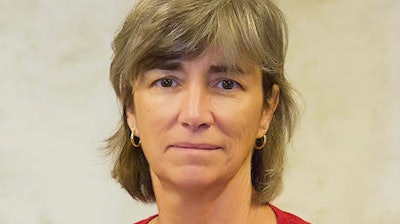Attempts to clamp down on free expression do little to combat antisemitism or other unacceptable forms of hate and prejudice, according to the leader of the American Association of University Professors (AAUP).
 AAUP President Dr. Irene Mulvey
AAUP President Dr. Irene Mulvey
Mulvey noted that the Dec. 5 House hearing "Holding Campus Leaders Accountable and Confronting Antisemitism" characterized long-standing campus commitments to free and open inquiry as inherently antithetical to the safety of students, particularly Jewish students in higher ed. The resulting spectacle, she said, looked more like “a performative McCarthy era witch hunt than a serious effort to improve campus tolerance and safety.”
University of Pennsylvania President Liz Magill, Harvard University President Dr. Claudine Gay, and MIT President Dr. Sally Kornbluth were challenged during a five-hour hearing on how their institutions responded to instances of antisemitism on campuses. The leaders’ responses faced swift backlash from Republican and some Democratic lawmakers as well as the White House. Magill resigned from her post over the weekend
The fallout centered on a heated line of questioning from Rep. Elise Stefanik, R-N.Y., who repeatedly asked whether “calling for the genocide of Jews” would violate each university’s code of conduct. The presidents were accused of hedging their responses. White House spokesman Andrew Bates issued a statement the following day, Dec. 6, criticizing Gay, Magill, and Kornbluth’s responses for not going far enough to condemn antisemitism on campuses.
“Universities have an obligation to protect the safety of their students and to promote a healthy campus culture,” said Mulvey. “At the same time, universities have an obligation to ensure a climate promoting academic freedom and freedom of expression. These obligations are not in conflict. The AAUP unequivocally rejects all efforts to curtail academic freedom and compromise the autonomy of universities and the speech and associational rights of faculty and students through a false choice between ‘safety’ and free inquiry.”
Mulvey continued: “Research, teaching, and the pursuit of knowledge must be allowed to occur openly, robustly, and without political interference so that colleges and universities can fulfill their educational mission and model the intellectual conditions necessary for learning, for dialogue and productive disagreement, and for growth.”





















